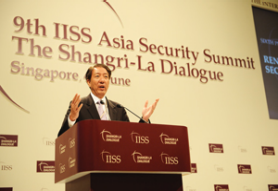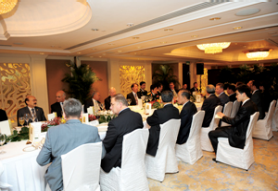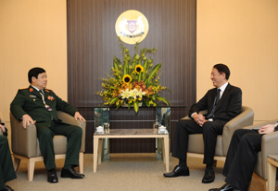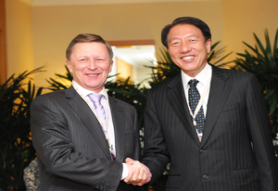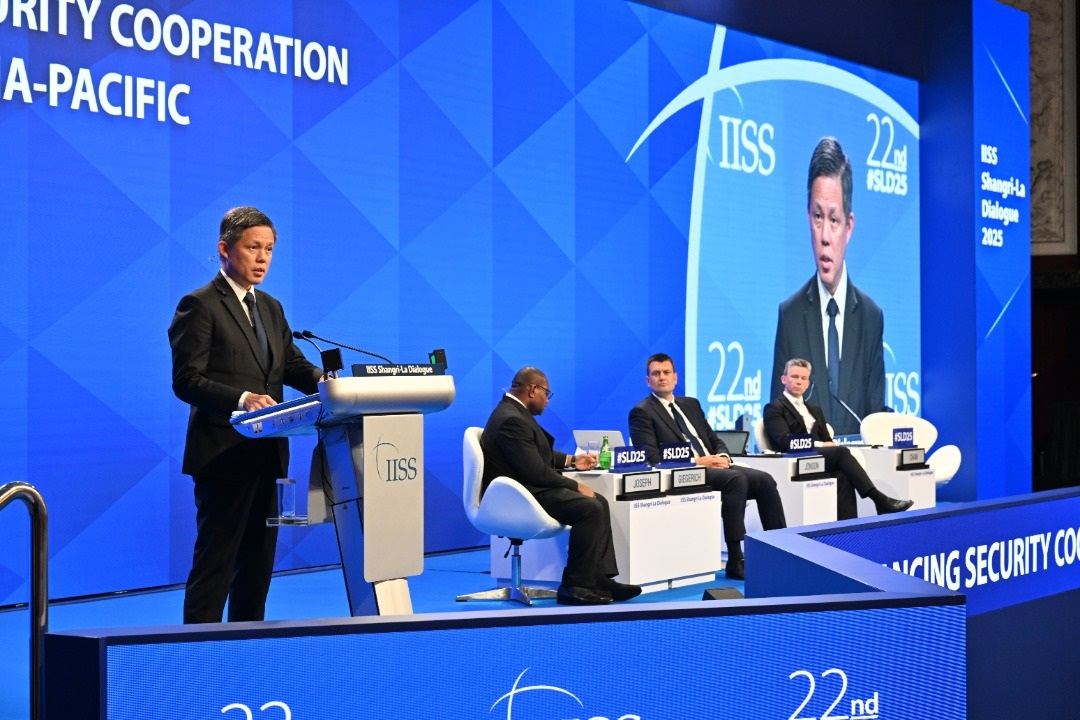DIPLOMACY
TOWARDS A COOPERATIVE PARADIGM IN THE ASIA-PACIFIC
15 Jul 2010
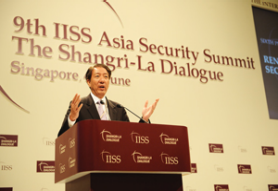
At the recent Shangri-La Dialogue (SLD), Asian nations discuss ways to safeguard their interests and tackle threats to regional security, such as having security frameworks that are more open and inclusive, and pre-disposed towards cooperation in practical ways.
The shift in the balance of global economic weight to Asia, on the back of the remarkable growth of Asian powers such as China and India, has brought on a set of strategic challenges.
"With the shift in the balance of economic weight comes a shift in the balance of geo-strategic weight," said Deputy Prime Minister and Minister for Defence Teo Chee Hean during his remarks to the 9th SLD on 6 Jun. The SLD is the only forum that brings together defence ministers, officials and experts across the Asia-Pacific region for discussions on regional security issues and defence cooperation.
Such geo-strategic shifts would inevitably bring strategic uncertainty, said Mr Teo. He added that this strategic uncertainty was compounded by various security challenges facing the region - the access and security of sea lanes, overlapping maritime claims, terrorism, Weapons of Mass Destruction proliferation and other transnational threats.
In dealing with these emerging issues, he called for Asia-Pacific countries to embrace a new cooperative paradigm which would enable countries to discover shared interests and tackle the security challenges which they collectively face.
This call for countries to work together to address security challenges was also made by other speakers at the SLD, including South Korean President Lee Myung-bak during his keynote address to the SLD on 4 Jun. "No one country can tackle (such challenges) alone, but rather, regional and international cooperation is vital," said Mr Lee.
ASEAN's role in fostering cooperation
The Asia-Pacific already has a regional security architecture that provides many opportunities for cooperation, emphasised Mr Teo. He singled out ASEAN as the fulcrum of this security architecture. He said ASEAN will continue to serve an important role for a number of reasons as it is "neutral, consultative and open to engagement".
Although ASEAN has been criticised by some as being slow and ineffectual, Mr Teo was of the opinion that this was one of its strengths. "The ASEAN way - patient consensus-building based on consultations and mutual respect...is also (the) very spirit that has enabled ASEAN to do certain things very well, such as facilitating dialogue, building trust and confidence, and fostering consensus," he said.
ASEAN-centred security architecture continues to evolve
Even as it builds on its strengths, the ASEAN-centred security architecture continues to evolve to take into account geopolitical shifts in the region. For instance, the ASEAN Defence Ministers Meeting-Plus (ADMM-Plus) was recently introduced, in an ADMM+8 format. Come October, the inaugural ADMM-Plus meeting will convene in Vietnam, which chairs ASEAN this year. The ASEAN countries will welcome eight countries - Australia, China, India, Japan, New Zealand, the Republic of Korea, Russia and the United States - at this inaugural meeting to be held in Hanoi.
"The ADMM+8 provides an inclusive yet focused configuration, bringing together, for the first time, the defence establishments of all the key players in the region. The ADMM+8 has great potential to bridge both dialogue and practical cooperation," said Mr Teo.
This sentiment was shared by the Minister of National Defence of Vietnam, General (GEN) Phung Quang Thanh, who noted in his plenary address that the ADMM-Plus would be a platform for consultations on areas of practical cooperation in defence. The ADMM-Plus will be "a mechanism of defence (cooperation) at the highest ministerial level guiding and directing substantive cooperation programmes for an effective solution to common security challenges and emerging non-traditional security challenges", said GEN Thanh.
Moving towards cooperation in practical ways
As regional constructs are evolving, Mr Teo called for a re-think of how nations view multilateral security cooperation. Countries need to work together towards positive, cooperative relationships on issues of shared interests, he said.
"Open and inclusive multilateral dialogue and exchanges...remain the best avenue for the comprehensive awareness and appreciation of shared interests," noted Mr Teo. He called on countries to move towards cooperation in practical ways, as more areas of shared interests are found and new and broader bases for cooperation are identified.
Mr Teo pointed out: "Practical forms of defence cooperation among countries, such as military exercises and exchanges, complement the role of dialogue in enhancing transparency, reducing the chances of misunderstanding and miscalculations, and building confidence and trust in each other."
Practical cooperation in the Asia-Pacific region
He noted that armed forces in the region already share a long history of conducting joint exercises through various frameworks such as the Western Pacific Naval Symposium and the Five Power Defence Arrangements. Even in traditionally sensitive areas such as intelligence, countries are coming together for exchanges. In 2009, the second Asia-Pacific Intelligence Chiefs Conference, which was held in Singapore, provided an informal forum for military intelligence chiefs to discuss common intelligence challenges and opportunities. It was attended by 25 countries, including the military intelligence chiefs of Australia, China, Indonesia and the US.
Mr Teo also noted the reassuring beginnings of a practical approach to cooperation to address real regional challenges. Citing the example of the Republic of Singapore Navy's Information Fusion Centre, where international liaison officers from seven countries currently work together to fuse, analyse and disseminate sea situation pictures, Mr Teo said maritime security is an area where countries are starting to cooperate closely.
Concluding his plenary session with a call for Asia-Pacific nations to remain open to cooperation, Mr Teo said: "The regional security architecture should remain inclusive, bringing together countries big and small who have significant security interests in the region, so that they can work together to build understanding and trust, and a cooperative framework that will provide the foundation for peace and security in our region."
This year's SLD, organised by the International Institute for Strategic Studies, was held over three days from 4 to 6 Jun. It was attended by 22 ministerial-level guests, and parliamentarians, military leaders and academics from 28 countries.
ALSO READ IN DIPLOMACY
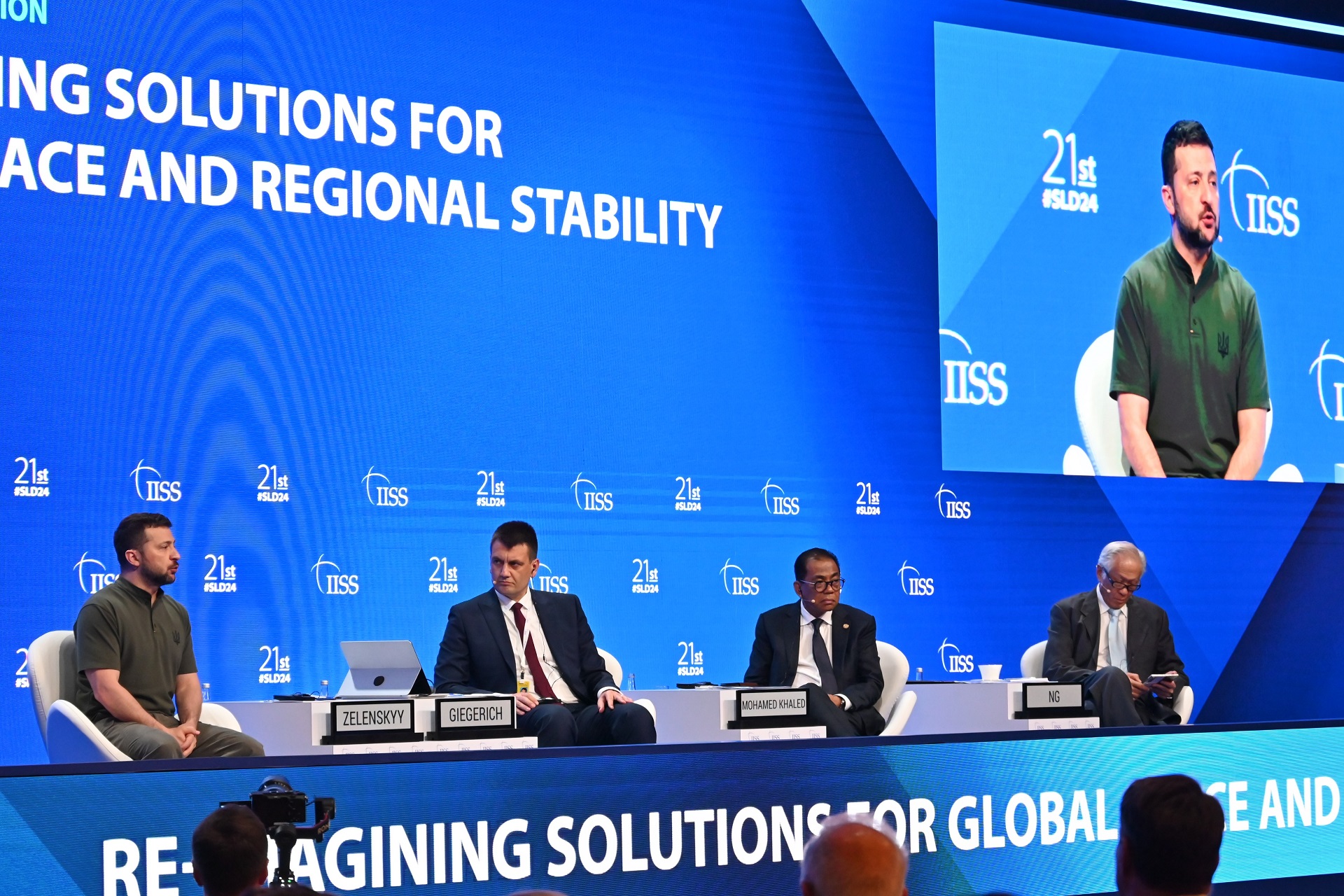
A call for peace at Shangri La Dialogue
02 Jun 2024
A repeated call for peace, especially in Asia. This was Minister for Defence Dr Ng Eng Hen's central message at the 21st Shangri La Dialogue (SLD), held from 31 May to 2 Jun.
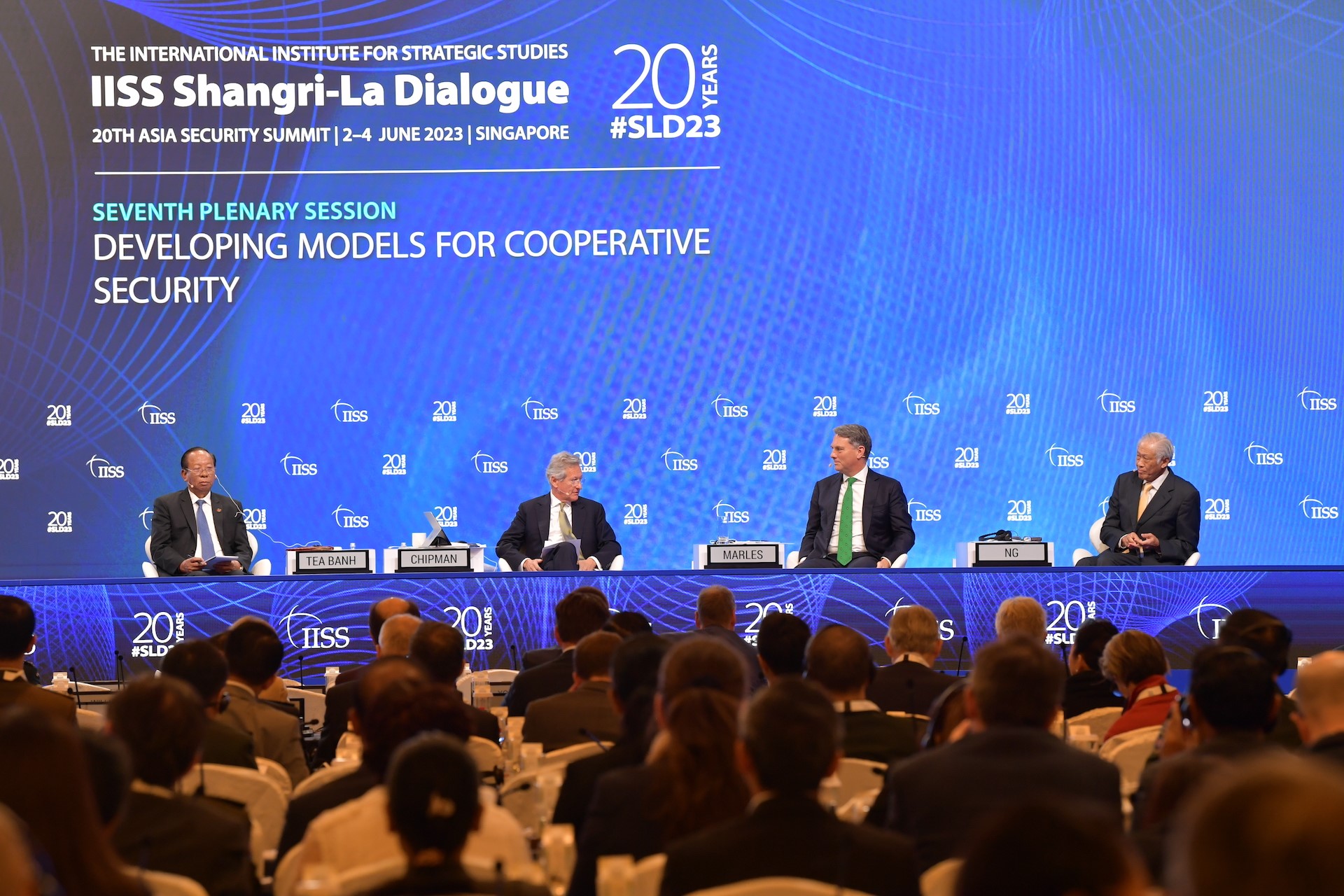
Shangri-La Dialogue sees frank discussion of security issues
04 Jun 2023
The 20th Shangri-La Dialogue, held from 2 to 4 Jun, saw ministers from around the world meet in Singapore to discuss key defence and security issues.
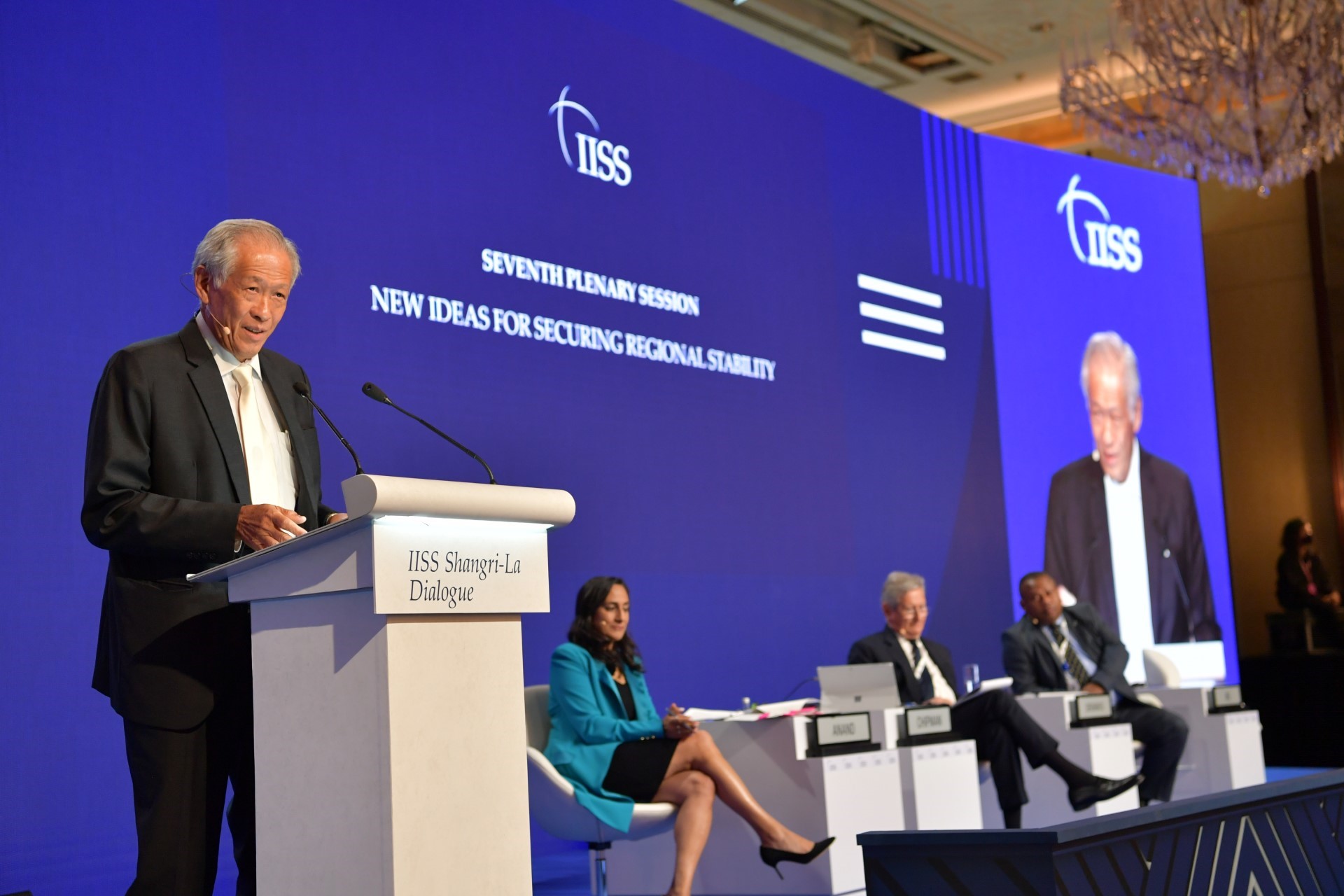
SLD remains valuable platform for crucial discussions: Dr Ng
12 Jun 2022
Minister for Defence Dr Ng Eng Hen spoke on the US-China relationship, the importance of a rules-based order and the role of ASEAN as a regional security platform at the 19th Shangri-La Dialogue (SLD).

